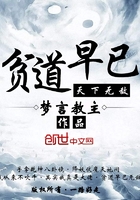Otho, after publicly purifying the city and weighing various plans for the campaign, determined to march upon Gallia Narbonensis, as the passes of the Penine and Cottian Alps and all the other approaches to Gaul were held by the armies of Vitellius. His fleet was strong and loyal to his cause, for he had enrolled in the ranks of the legion the survivors of the slaughter at the Milvian bridge, whom the stern policy of Galba had retained in custody, while to the rest he had held out hopes of a more honourable service for the future. To the fleet he had added some city cohorts, and many of the Praetorians, the stay and strength of his army, who might at once advise and watch the generals.
The command of the expedition was entrusted to Antonius Novellus and Suedius Clemens, centurions of the first rank, and Aemilius Pacensis, to whom Otho had restored the rank of tribune, taken from him by Galba. Oscus, a freedman, retained the charge of the fleet, and went to watch the fidelity of men more honourable than himself.
Suetonius Paullinus, Marius Celsus, and Annius Gallus, were appointed to command the infantry and cavalry. The Emperor, however, placed most confidence in Licinius Proculus, prefect of the Praetorian Guard; an active officer at home, without experience in war, he founded perpetual accusations on the high influence of Paullinus, on the energy of Celsus, on the mature judgment of Gallus, in fact, on each man's special excellence, a thing most easy to do; and thus the unscrupulous and the cunning were preferred before the modest and the good.
About this time Cornelius Dolabella was banished to the Colonia Aquinas, but he was not kept in strict or secret custody; it was not for any crime that he suffered; he was marked out for suspicion by his ancient name and by his relationship to Galba. Many of the officers of state and a large proportion of the men of consular rank Otho ordered to accompany him to the field, not indeed to share or serve in the campaign, but to form a retinue. Among them was Lucius Vitellius, whom Otho treated as he treated the rest, and not as though he were the brother either of an Emperor, or of an enemy. This roused the anxieties of the capital; no rank was free from apprehension or peril. The leading men of the Senate either suffered from the infirmities of age, or were enervated by a prolonged peace;the nobility were indolent and had forgotten how to fight; the Equestrian order knew nothing of service; and the more they endeavoured to hide and repress their alarm the more evident was their terror. On the other hand, there were some who with senseless ostentation purchased splendid arms and magnificent horses, and some who procured by way of equipments for the war the luxurious furniture of the banquet and other incentives to profligacy. The wise looked to the interests of peace and of the Commonwealth, while the giddy and those who were thoughtless of the future were inflated with idle hopes. Many whose credit had been shaken in the years of peace regained their spirits amidst the confusions of the time, and found their best safety in revolution.
The mob and the people generally, whose vast numbers cut them off from all interest in the state, began by degrees to feel the evils of war, now that all the currency had been diverted to the purposes of the army, and the prices of provisions were raised. These evils had not equally distressed the common people during the insurrection of Vindex; the capital was safe, and the war was in the provinces, and, fought as it was between the legions and Gaul, it seemed but a foreign campaign. Indeed from the time that the Divine Augustus consolidated the power of the Caesars, the wars of the Roman people had been in remote places, and had caused anxiety or brought honour to but one man. Under Tiberius and Caius men dreaded for the Commonwealth only the miseries of peace. The rising of Scribonianus against Claudius was crushed as soon as heard of. Nero was driven from power by evil tidings and rumours rather than by the sword. Now the legions and the fleets were brought into action, and with them a force used but on few other occasions, the Praetorian and city soldiery. In their rear were the provinces of the East and of the West with all their forces; had they fought under other generals there was all the material for a protracted war. Many suggested to Otho, as he was setting out, a religious obstacle in the fact that the sacred shields had not been restored to their place. He spurned all delay, as having been Nero's fatal mistake; and the fact that Caecina had now crossed the Alps urged him to action.
On the 14th of March, after commending the State to the care of the Senate, he presented to those who had been recalled from exile what was left of the Neronian confiscations, or had not yet been paid into the Imperial treasury, a most equitable and apparently most splendid piece of liberality, but practically worthless, as the property had been hastily realized long before. Soon afterwards he summoned an assembly, and enlarged on the dignity of the capital and the unanimity of the Senate and people in his favour. Of the party of Vitellius he spoke with moderation, charging the legions with ignorance rather than with crime, and ****** no mention of Vitellius himself. This moderation was either his own, or was due to the writer of the speech, who, fearing for himself, abstained from invectives against Vitellius. For Otho was believed to avail himself of the abilities of Galerius Trachalus in civil matters, just as he employed those of Celsus and Paullinus in war. There were some who recognized the very style of speaking, which was well known from his constant pleading at the bar, and which sought to fill the popular ear with a copious and sonorous diction. The acclamations and cries which habitual flattery prompted in the people were at once extravagant and false. As if they were applauding a Dictator like Caesar, or an Emperor like Augustus, they vied with each other in their zeal and good wishes. They acted not from fear or affection, but from the mere love of servitude; as it might be in some private household, each had his own motives, and the public honour now went for nothing. Otho set out, leaving the peace of the city and the cares of empire in the charge of his brother Salvius Titianus.















